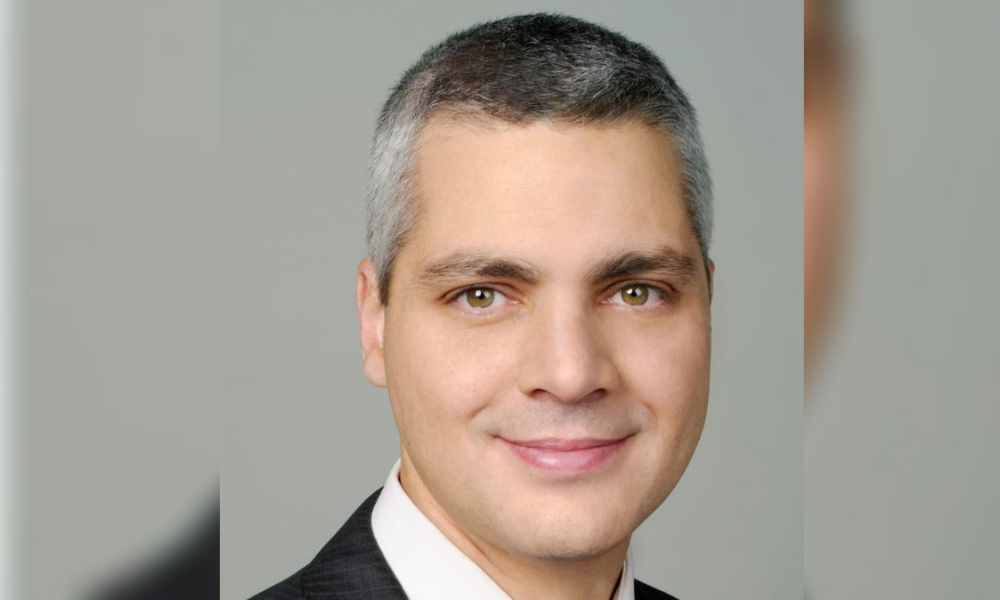Sun Life SVP explains how group retirement savings plans can be an ideal vehicle to channel Canadians' sustainable investing

To its critics, sustainable investing has long gotten a bad rap for being a trade-off decision: investing in a good company must come at the cost of returns. But a look at the recent performance of Canadian ESG funds calls that notion into question.
“The Responsible Investment Association of Canada has said that 80% of Canadian responsible funds outperformed their average asset-class return in the one-year period ending Q1 2020,” said Eric Monteiro, senior vice president, Group Retirement Services at Sun Life. “If you look at longer-term periods, the majority of responsible investment funds also performed well relative to their average asset-class return over three-, five-, and 10-year periods, which reinforces to us the long-term value of sustainable investing.”
Going beyond the decade-long horizon, Monteiro noted, bolsters the case for sustained outperformance. In 11 out of the past 13 years, the MSCI Canada ESG Leaders Index has beaten the MSCI Canada Index.
It’s with that in mind that Sun Life launched a proprietary ESG evaluation framework for its Group Retirement Savings (GRS) plans in July last year. Beyond the appeal of outperformance, the framework has the fundamental objectives of identifying ESG leaders in every major asset category on its core GRS investment platform – which includes 23 investment managers and over 140 investment options – as well as helping plan sponsors understand the level of ESG integration for the various investment options offered in their retirement savings plans.
“In our view, workplace savings plans are a great way for Canadians to save and make a difference,” Monteiro said. “Think about the reach of those saving plans relative to the individual retail world. There are so many more investors that are part of group plans, so there’s potential for a much greater scope of sustainable investing opportunities.”
The adoption of ESG in GRS plans also has the potential to ripple out into the individual space. Since plan sponsors are well positioned to engage with and educate their members, Canadian participants in responsible investment plans may also end up applying principles of sustainability in their own accounts. But what they won’t be able to do, Monteiro argued, is amass their dollars into voting blocs for change the way they potentially could through workplace savings and investment plans.
“You can always take your money away from a certain company stock, but that doesn’t really help companies improve, particularly on the social and governance dimensions,” he said. “In our role as a record keeper, we at Sun Life can actually engage with investment managers on our platform, including those who weren’t able to distinguish themselves as ESG Leaders, and make sure they’re improving their ESG integration processes. As a retail investor, you don’t get that chance to be represented.”
The recent events of the pandemic have underscored the need for sustainable investing among investors, including 73% of clients in a recent Sun Life survey who agreed that companies have a greater responsibility to support sustainability. In another recent poll, four fifths of Canadian plan members (79%) said they were interested or somewhat interested in sustainable investments. As Monteiro put it, employers and employees they surveyed don’t just care about companies having great returns and producing great products; they also care about how they behave with their stakeholders, including suppliers, their employees, and the community they operate in.
“Members and employees in general are very interested in it, which drives advisors and consultants to take an interest in it as well,” Monteiro said. “I think it’s a very good trend to see because it’s a core part of our purpose, which is to help our clients achieve lifetime financial security and live healthier lives. So we’re excited about the opportunity to drive a more sustainable economy.”
While Canadians can certainly express their convictions through their own investment accounts, that approach can leave them more vulnerable to headlines that cast companies or entire industries in an unfavourable light. In contrast, Sun Life’s use of a robust and well-structured proprietary framework lends itself to more objective and consistent evaluations through the use of well-defined quantitative and qualitative measures.
And arguably, retirement investing and sustainable investment complement each other at a fundamental level that individual stock selection can’t match. As Monteiro said:
“We’re talking about people’s retirement savings, which means they need a portfolio of investments that’s balanced on both equities and income to get them to a sustainable retirement. The last thing we want is for them to bet on a particular stock or another, even if for ESG reasons … from a financial security point of view, it’s not likely to drive the right outcome on aggregate.”



